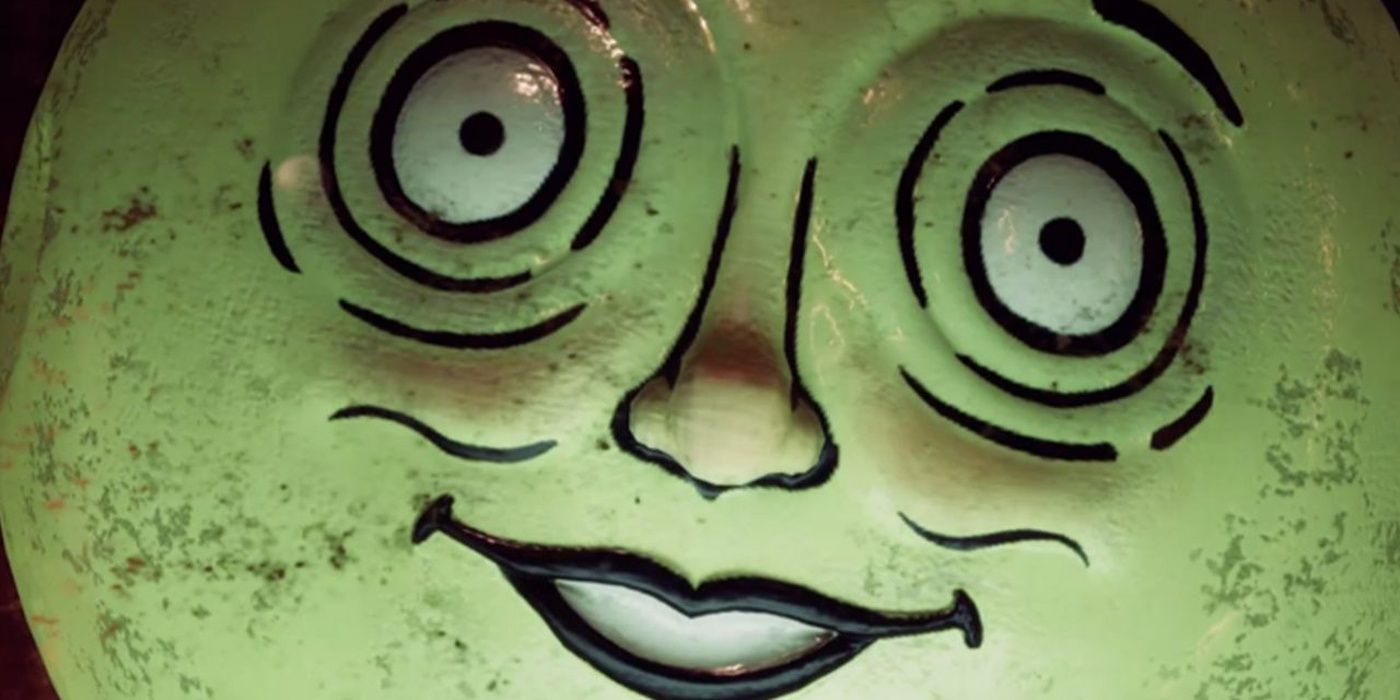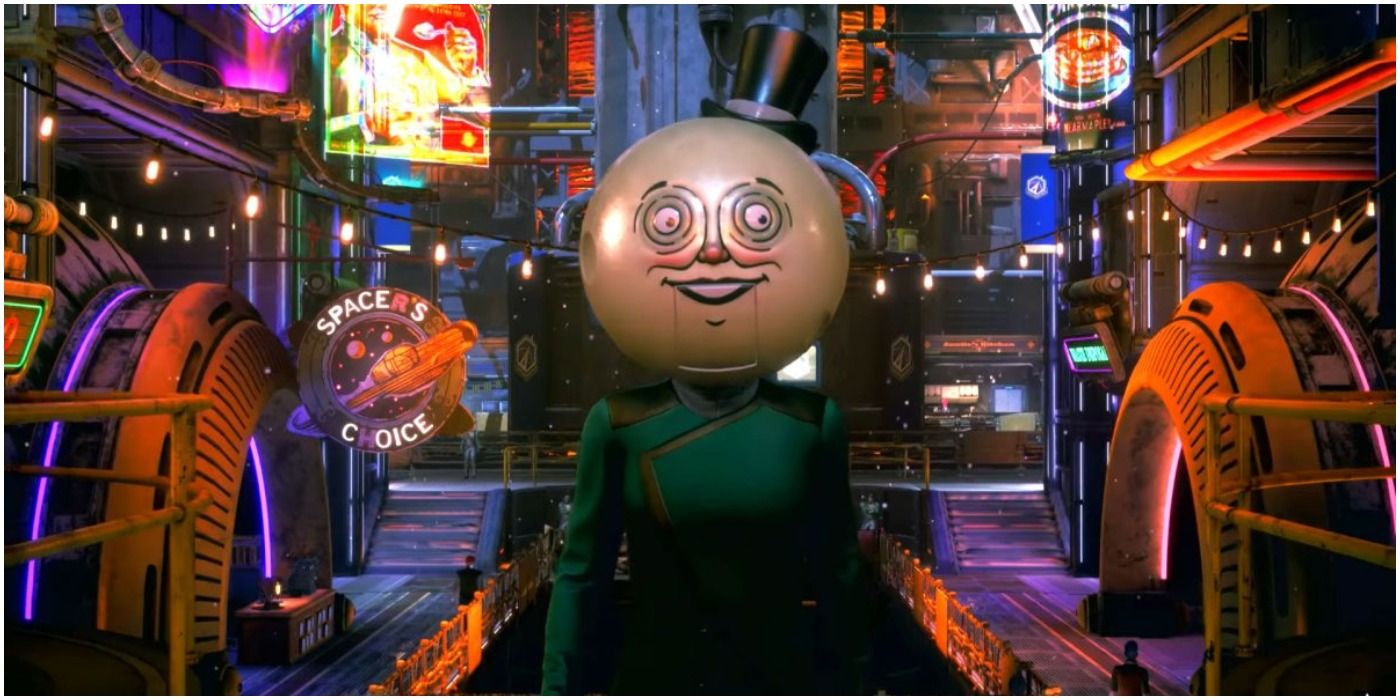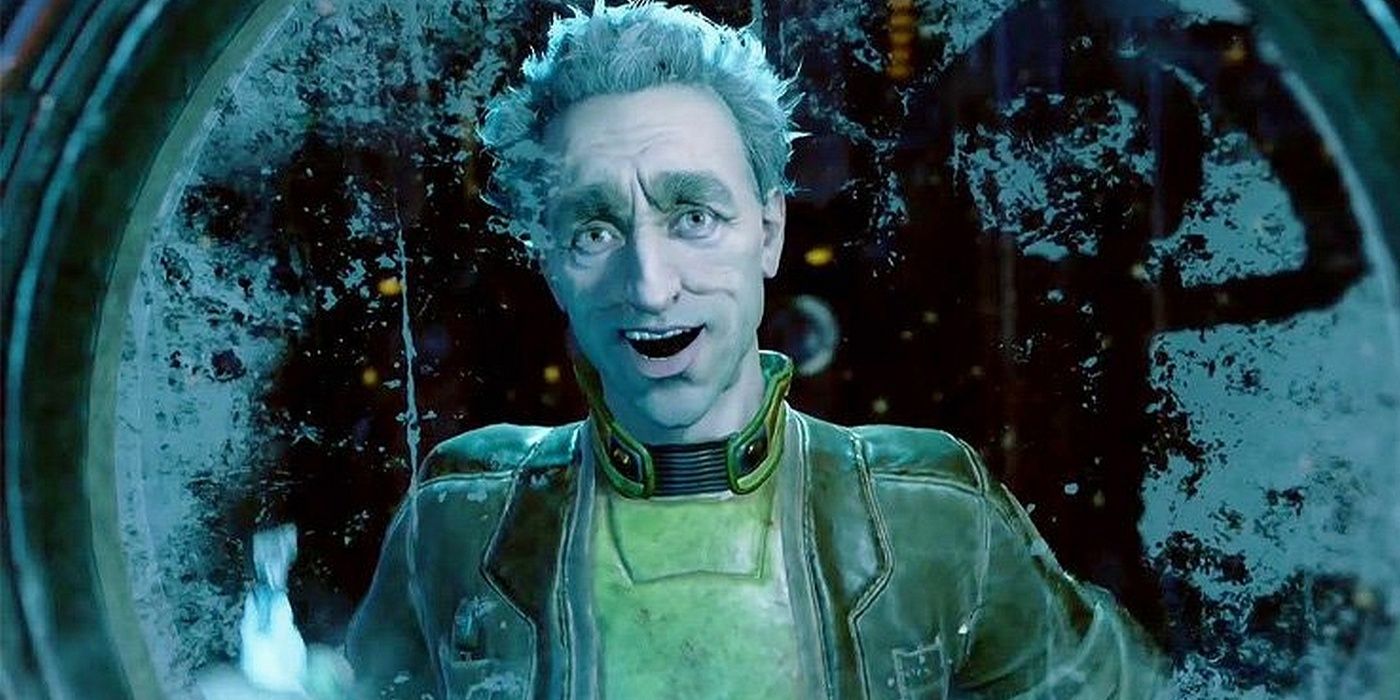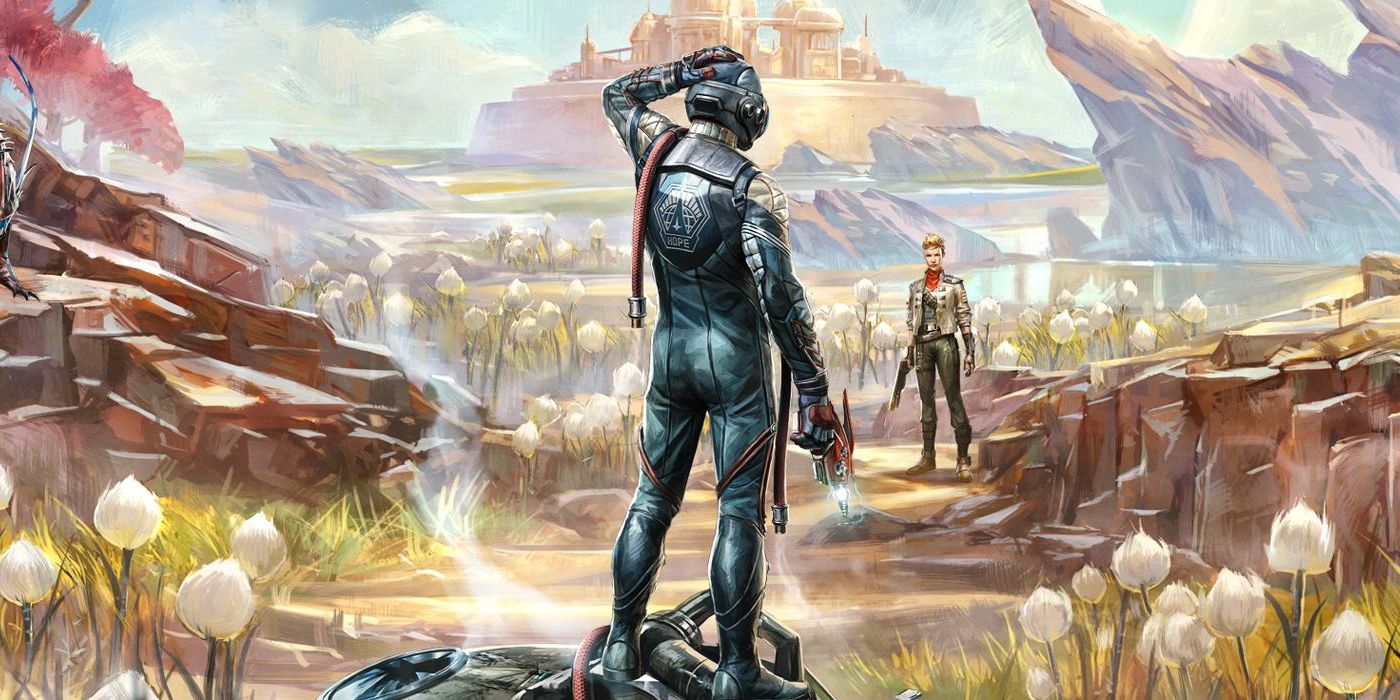The Outer Worlds is a strong addition to the first-person RPG genre, improving on many common criticisms of games like Skyrim and the Fallout series. Despite this, the genre itself still has a huge problem telling compelling character-driven stories compared to its RPG competition from BioWare and CD Projekt Red.
If Avowed is going to make the genre feel like it has taken a generational step forward in time for the next generation of consoles its story needs to be as compelling as its setting. While The Outer Worlds improved on the genre's storytelling from games like Skyrim, its limitations can be a useful focal point to figure out where Avowed will need to improve for the genre to progress.
The Outer Worlds’ Genre Problem
The Outer Worlds’ greatest strength is its setting. The player is stuck in a region of extremely peripheral colonized planets under the iron fist of corporations like Spacer’s Choice that occupy seats on a shadowy organization known as The Board. Combined with its ray-gun gothic art style The Outer Worlds feels like fresh life breathed into the familiar Fallout formula and its anti-capitalist trappings.
Underneath it all, however, remains that same formula. The games’ skeletons are extremely similar to the extent that in The Outer Worlds, as in Fallout 3, as in Skyrim, the game begins with the player escaping some form of imprisonment, an escape that ends with the player literally emerging from a cave, and be briefly disoriented before a view of the open-world landscape is revealed before them.
The point each game is trying to make is clear: the setting itself is the main attraction of this game. If Avowed is going to push this style of first-person RPG further, it will need to develop both an interesting setting and a compelling character-driven narrative within that sandbox. Once the player has left the cave they face an open world full of quests to complete that win over the various NPCs and factions in the game.
The genre has never been known for a focus on character development among either its NPCs or player characters. In Skyrim’s civil war quests, for example, the player meets almost no new characters no matter which side they choose, instead simply completing a series of combat-focused missions until they slay the head of the enemy faction and the quest-giver tells them that the war has been won.
The Outer Worlds faces similar storytelling limitations even as a high-quality example of the genre. Compared to BioWare’s Mass Effect series or CD Projekt Red’s The Witcher, other recent giants of the RPG genre, the lack of focus on character becomes extremely apparent. If Avowed is going to push the RPG genre forward, just as CD Projekt Red hopes that Cyberpunk 2077 will be an immersion leap, then Obsidian needs to double its efforts at creating a character-driven narrative, not just a unique world.
Aesthetics vs. Characterization
Though The Outer Worlds has a unique aesthetic and fine-tunes many of the mechanics seen in earlier examples of the genre from Bethesda and Obsidian, it showcases some of the style’s storytelling limitations as well. While characters in The Outer Worlds are memorable, that is in part because they’re written flatly enough that they’re easily reduced to a few key features.
Even one of the most important characters in the game, Phineas Welles, the rogue anti-establishment scientist who rescues the player at the start of the game, was created “very quickly, because we were watching Rick & Morty at the time” according to one of the developers, and the lack of time spent distinguishing the character beyond that archetype shows in the final product. Indeed, once the player has read that quote, it’s too uncanny a resemblance to ignore.
Other characters like Parvati, the game’s first companion, find themselves falling into clichés as well, with the character claiming she became a mechanic after her father “taught me all he knew.” It’s a step up from the total indifference of a companion like Skyrim’s Lydia, but not nearly the same time is given to the characters than is given to your companions in Mass Effect,for example, forcing the developer to communicate the characters in generic shorthand rather than developing them more naturally throughout the story.
The aesthetic stylization of The Outer Worlds is one of the game’s best features, but the characters can come across as manifestations of this style more than distinct characters in their own right. The function of every character, be it narrative or mechanically, is allowed to overwhelm their potential to have an investing personality.
The companions in The Outer Worlds feel like video game companions before they feel like characters, and the quest-givers feel like quest-givers. This falls short compared to some of the most memorable companions like Alistair or Zevran from Dragon Age: Origins, who feel like characters in their own right whose story is being told through the game medium but who could easily exist independently of it.
It’s far harder to place the motivation behind completing many of the quests in the Bethesda and Obsidian style of RPG as well, beyond the meta-reasoning that the player doesn’t want to miss content. There is more of a sense of genuine story immersion in most Witcher 3 contracts than many of the quests in The Outer Worlds, because those missions feel intertwined with Geralt’s story, rather than the main character merely being a lens through which the player witnesses the broad strokes of the story of the setting.
The Future of Open-World RPGs
While games like The Outer Worlds seem as if they have perfected it to a fine art, the entire genre of the Bethesda-style first-person open-world RPG has consistently shown a lack of character depth or a capacity to tell complex stories. Between Fallout 4 and The Outer Worlds the greatest development in the genre in recent years has been in its combat, while neither studio involved has progressed to telling stories as compelling as their rivals’ at BioWare or CD Projekt Red.
Despite their own flaws, games like The Witcher 3 and Dragon Age: Inquisition have demonstrated that the open-world format is not incompatible with strong character-driven storytelling. The challenge facing Obsidian with Avowed will not be the hardware limitations of the next generation of consoles, but the design philosophy which has been developed between Bethesda and Obsidian which could prioritize Avowed's setting as the focal character of its game without developing the relationships within that setting into exciting or believable stories.
The Outer Worlds is available now for PC, PS4, Switch, and Xbox One.




